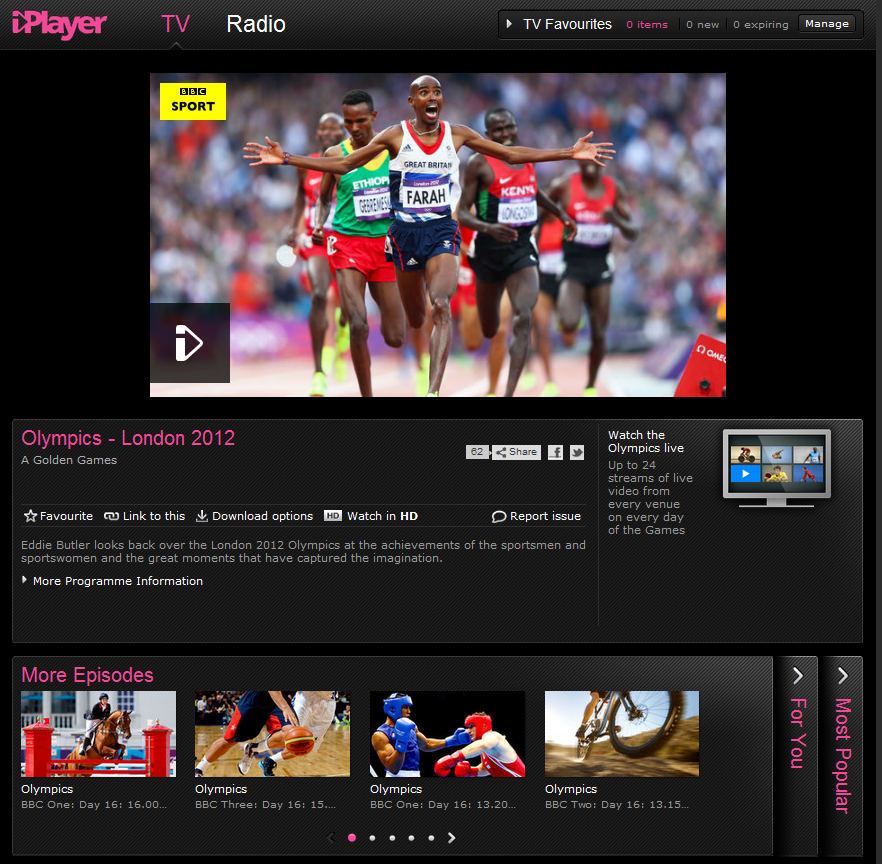
The Olympic Games on BBC iPlayer with options to watch replays or watch any of the 24 channels live. All sports were broadcast – the first time this has been achieved in Olympic history.
By Mat Bennett
London 2012 was always expected to be the most digitally connected Olympic games ever, however many were still surprised by the role that the internet and digital technology played throughout the games. If this wasn’t clear in advance, then it became hard to ignore when Sir Tim Berners Lee took a starring role in the opening ceremony itself.
Whilst many sports fans were undoubtedly left wonder who was “the geek in the shed”, the inventor of the World Wide Web sent a tweet that would light up the Olympic stadium. The message of the tweet was “this is for everyone”, as appropriate about the Olympics as it is about his gift of the web to the world.
“This is for everyone”
That tweet itself generated almost 10,000 retweets, a number that would pale in comparison with huge levels of social engagement as the games went on. Engagement that would peak with an incredible 116,000 tweet a minute during the closing ceremony.
The digital involvement of the games though went far beyond social media. Olympic coverage by the BBC went truly multi-format. The usual “rolling talk & snippets” formats for major events was of course present and, I am sure, greatly enjoyed by many. However the BBC boosted this to 24 dedicated TV channels allowing viewers full control to view any and every event of their choosing.
Olympics Everywhere
If you could make yourself leave your front room there was still no need to miss a thing. The BBC Olympic website, combined with iPlayer, gave access from wherever you could get online together with all of the supporting facts figures and background you could want. The much applauded site served over 55 million visitors during the games, peaking as Bradley Wiggins won his medal in the men’s time trials. Add in mobile internet, official (and unofficial!) apps and it was truly possible to never miss a moment.
Phil Fearnley, General manager of News & Knowledge, BBC Future Media said “Our aspiration was that just as the Coronation did for TV in 1953, the Olympics would do for digital in 2012”. Whether the coverage will have helped generate the lasting digital legacy for that to happen is yet to be seen. Certainly though, initial evidence is that the Olympics helped persuade many people to consume their sport digitally for the first time.
The success of that legacy will be largely influenced by the availability of fast reliable broadband. Olympic sponsors BT have been quick to align themselves with the success of the digital Olympics running ads proclaiming their Infinity product as at the heart of the success. BTs flagship product is still though only available to around 1 in 3 UK households, leaving the vast majority of users downloading their 2012 content through the 19th century invention of twisted pair copper. With BT promising that coverage will improve to 2/3 of households before the next Olympics it will be interesting to see where that digital legacy leads us.



